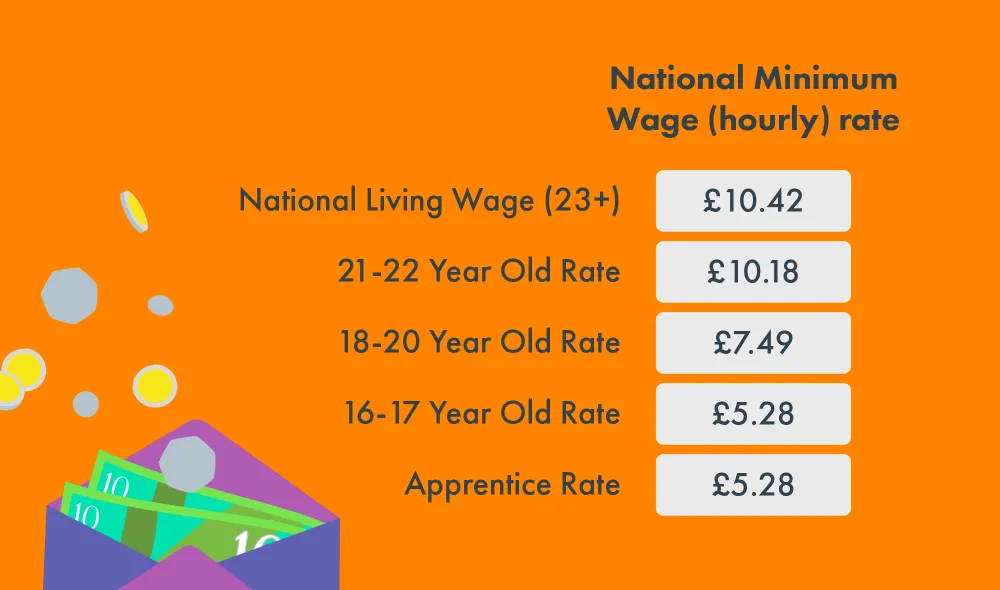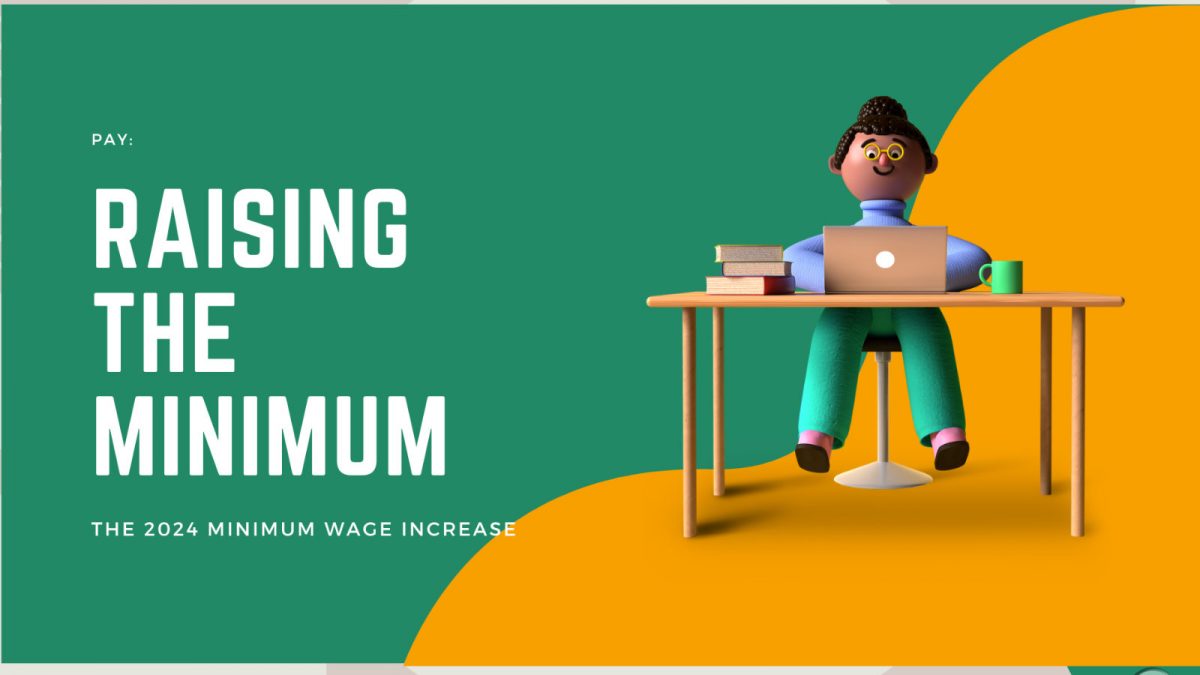- Contact us:
- 03300 535 600
- [email protected]

Beyond Sun and Smiles: Protecting Seasonal Workers’ Rights in the UK
February 16, 2024
The Unexpected Upside: Why Your Commute Might Be Doing You Good
June 11, 2024The UK government has announced the largest ever increase to the National Living Wage (NLW), the minimum hourly rate for workers aged 21 and over. This significant change will come into effect from April 2024 and will impact millions of workers across the country.
What’s Changing?
Previously, the NLW stood at £10.42 per hour. As of April, it will rise to £11.44 per hour, representing a 9.8% increase for workers over 23 and a 12.4% increase for those aged 21-22. This translates to a potential annual pay rise of over £1,600 for a full-time employee on the NLW.
Who Benefits?
The increase will benefit millions of low-paid workers across various sectors, including retail, hospitality, cleaning, and social care. This is particularly welcome news during a period of rising living costs, with inflation putting a strain on household budgets.
The Rationale Behind the Increase
The government’s decision reflects their commitment to achieving the target of setting the NLW at two-thirds of median earnings by 2024. This policy aims to improve living standards for low-income workers and contribute to a fairer economy.

Impact on Businesses
While the wage increase is positive for workers, some businesses may face challenges in absorbing the additional costs. The government acknowledges this and is offering support through tax breaks and training programs to help businesses adapt.
What You Need to Do
If you are a worker aged 21 or over and currently earning the NLW, you are entitled to an automatic pay rise from April 2024. It’s important to check your payslip after this date to ensure you’re receiving the correct wage.
Looking Ahead
The significant increase in the minimum wage is a positive step towards improving living standards for low-paid workers in the UK. However, the ongoing cost of living crisis highlights the need for continued focus on economic policies that support low-income earners.
Over 500 Companies Exposed: HMRC Crackdown on Minimum Wage Violations
The UK’s tax authority, Her Majesty’s Revenue and Customs (HMRC), has once again released a shocking list of over 500 companies found to have underpaid their workers. This ongoing effort to enforce the National Minimum Wage (NMW) and National Living Wage (NLW) highlights a pervasive problem within British businesses and the urgency of protecting workers’ rights.
Who’s on the List?
The list exposes a diverse range of employers across various sectors, including household names like Greggs, easyJet, and Hamleys. Small local businesses haven’t escaped scrutiny either. These companies represent a wide range of industries, from hospitality and retail to recruitment and care work. Overall, these firms were found to have left over 172,000 employees out of pocket, with some individual workers being short-changed by thousands of pounds.
The Cost of Non-Compliance
Employers who violate minimum wage laws don’t just harm their workers; they face severe consequences:
- Backpay and Penalties: Offending companies are forced to repay underpaid wages plus substantial fines. The latest crackdown resulted in over £16 million in restitution to workers.
- Reputational Damage: Being publicly named and shamed can tarnish a company’s reputation, potentially leading to loss of customers and difficulty attracting talent.
A Call for Continued Vigilance
While the HMRC’s efforts are commendable, their ongoing investigations suggest that minimum wage violations remain a significant problem in the UK. It’s crucial for businesses to understand and comply with their obligations to their staff and the legislation. The actions of these 500+ companies also raise questions about larger systemic issues, like inadequate enforcement and the power imbalance between employers and some of their most vulnerable workers.
Worker Resources
If you suspect you’re not being paid the legal minimum wage, the following resources are available:
- ACAS Helpline: The Advisory, Conciliation, and Arbitration Service (ACAS) provides confidential advice on workplace rights. (Website: https://www.acas.org.uk/)
- Gov.UK Website: The government’s official website contains details on minimum wage rates and how to report suspected violations. (Website: https://www.gov.uk/national-minimum-wage-rates)
Protecting Workers’ Rights
Ensuring fair pay is a fundamental right of workers and is key to maintaining a just and equitable society. Companies that violate these laws not only exploit their employees but also undercut ethical businesses. Increased awareness, stricter enforcement, and supporting worker empowerment are essential steps toward eradicating wage exploitation.




